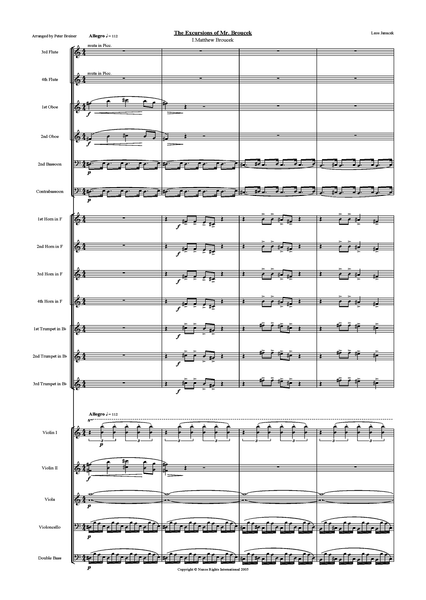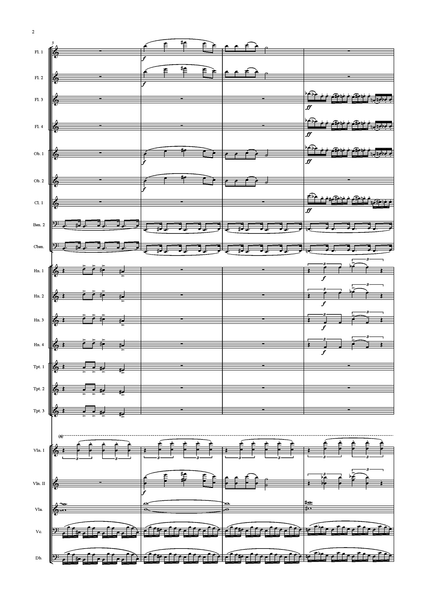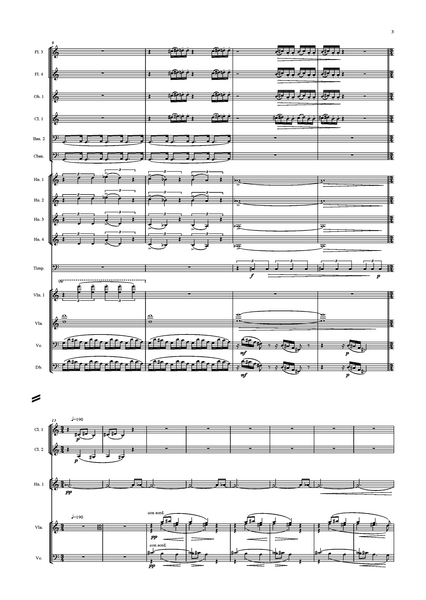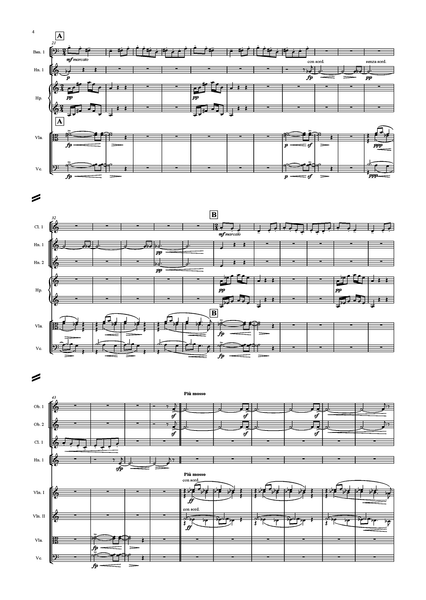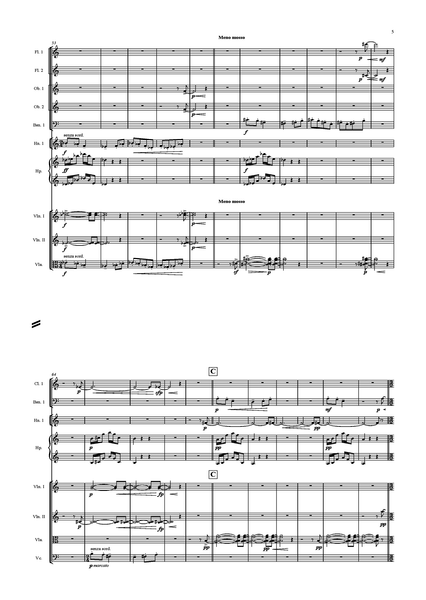Leoš Janáček: The Excursions of Mr Brouček Suite – arranged by Peter Breiner (PB044)
Sheet music edition. Choose your format from the selection above.
121 pages
Duration: 39m
Instrumentation: 4, 2+1, 2+1, 2+1 - 4, 3, 3, 1 - timp + perc - hp - cel - str
The Excursions of Mr Brouček finds Janáček dealing with a comic story of a drunken landlord. This satirical view of the Czech Everyman was the creation of the nationalist writer Svatopluk Čech Janáček read Výlet pana Broučka do Měsíce (The Excursion of Mr Brouček to the Moon) when it was first published in 1888 and the composer later reprinted part of the story in his musical journal. After the disappointment of Jenůfa, and his floundering opera Osud, Janáček sought to change his dramatic approach and cast his mind back to Matěj Brouček. He is a drunk, bumbling figure who somehow finds himself transported to the Moon – a place dominated by pretentious artistic types. Subsequently he is taken back to the fifteenth century, where he becomes embroiled in nationalistic wars. Over the course of this esoteric opera, Brouček reveals himself as nothing but an oaf and a coward.
The suite, largely comprised of sections from the first ‘excursion’ to the Moon, is introduced by the musical depiction of Matěj Brouček’s name, spelled out clearly by the horns and trumpets. We first meet our eponymous lout on a peaceful moon-filled evening in Prague, with lush strings in counterpoint with the dogmatic punctuation of the woodwind. Brouček is staggering home and overhears the lovers Málinka and Mazal; their characters are clearly discernible through the orchestral textures. Life on earth is too much for Brouček and he decides to journey to the moon, depicted in the second movement’s spectral opening bars. Disappointment greets Brouček, however, who is horrified to discover that, despite the many beauties of the Moon, it is populated by the artistic and intellectual avant- garde. The third movement sees Janáček testing his orchestral dexterity with a series of moon dances, which take place in the Lunar Palace of Arts. Like the moon characters themselves, who strongly resemble some of Brouček’s acquaintances back home, the dances are thoroughly imbued with Czech spirit. Earth is more Brouček’s kind of place and he returns whence he came, eventually carried home by his neighbours in a barrel.
The final movement draws its inspiration from the music of the fifteenth-century ‘excursion’ which, despite Brouček’s presence, is a much more serious affair. Fifteenth- century Prague is under siege from the armies of the Holy Roman Empire and Brouček is drawn into the mire. The heraldic brass start a triumphant ‘dance’ of victory as the Czech national fighters suppress outside forces. The people celebrate victory with a hymn (based on the Hussite Chorale ‘Kdož jsou Boží bojovníci’, which also appears in Smetana’s Má vlast), but there have been deaths and their effect is sobering. Brouček is discovered in hiding and accused of treachery. Rather appropriately, he is sentenced to death, again in a beer barrel. Although the opera ends with Brouček claiming that he saved Prague ‘single-handed’, the Suite ends in a glorious encapsulation of the true victory music, rounding off this depiction of Janáček’s capricious but beautiful nationalist opera. Those heraldic tones would have had singular resonance for the new nation of Czechoslovakia in which The Excursions of Mr Brouček had its première in April 1920. By that time too, his peers finally regarded Janáček as a great composer.
Audio Sample






